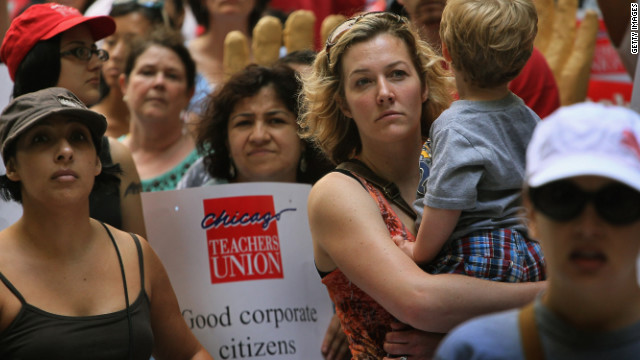By Chris Rhomberg, Special to CNN
(CNN) — In Chicago, thousands of public school teachers and support staff represented by the Chicago Teachers Union have walked off their jobs after reaching an impasse in contract talks with the city.
And last month, 780 machinists at a Caterpillar Inc. parts plant in Joliet, Illinois, voted to end their three and a half month strike, accepting a six-year contract that contained almost all of the concessions the company demanded.

The numbers are stark. During the 1970s, an average of 289 major work stoppages involving 1,000 or more workers occurred annually in the United States. By the 1990s, that had fallen to about 35 per year. And in 2009, there were no more than five.
The decline in strikes cannot be explained solely by declining union membership. According to a study by sociologist Jake Rosenfeld, unionization among private-sector full-time employees fell by 40% between 1984 and 2002. But the drop in total strike frequency was even greater, falling by more than two-thirds.
Chris Rhomberg is an associate professor of sociology at Fordham University. He is the author of “The Broken Table: The Detroit Newspaper Strike and the State of American Labor” (Russell Sage Foundation).
More>>

